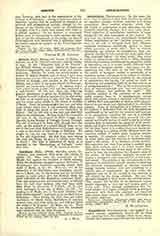

Assideans (Hebr., CHSYDYM, chasidim, saints; Gr., Asidaioi), men endowed with grace (Ps., xxxix, 5; ‘cxlviii, 14). They were the maintainers of the Mosaic Law against the invasion of Greek customs. When the Machabees struggled against Antiochus IV (Epiphanes), the Assideans naturally joined their cause (I Mach., ii, 42, 43). However, not all the adherents of the Machabees were Assideans; according to I Mach., vii, 13, the Scribes and the Assideans sought to make peace with the Syrians, while the other followers of the Machabees suspected deceit. That this suspicion was well founded may be inferred from the fact that Alcimus, who had been made High Priest by Demetrius I (I Mach., vii, 9), slew sixty Assideans in one day (I Mach., vii, 16). According to II Mach., xiv, 3, the same Alcimus “willfully defiled himself”, and later on he testified before Demetrius: “They among the Jews that are called Assideans, of whom Judas Machabeus is captain, nourish wars, and raise seditions, and will not suffer the realm to be in peace” (II Mach., xiv, 6). There is an opinion which maintains that the Assideans were identical with the later Pharisees.
A. J. MAAS

